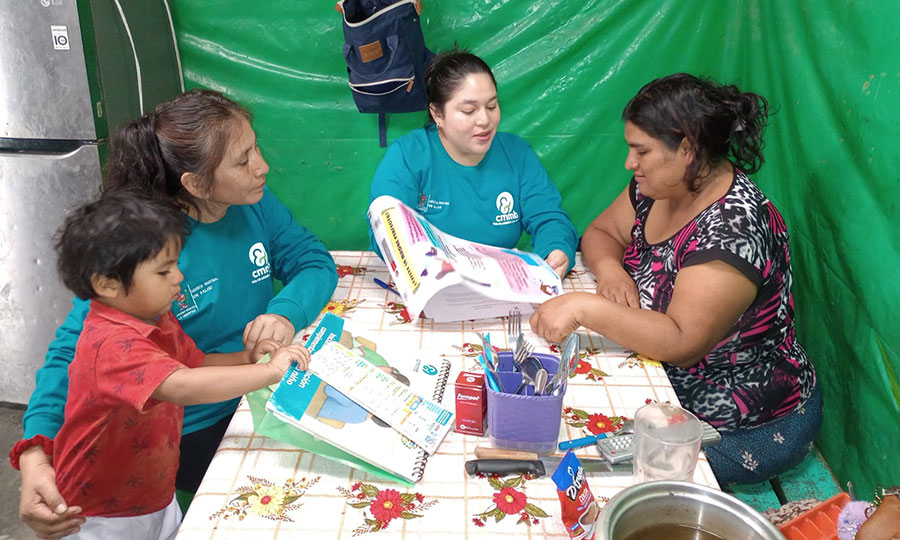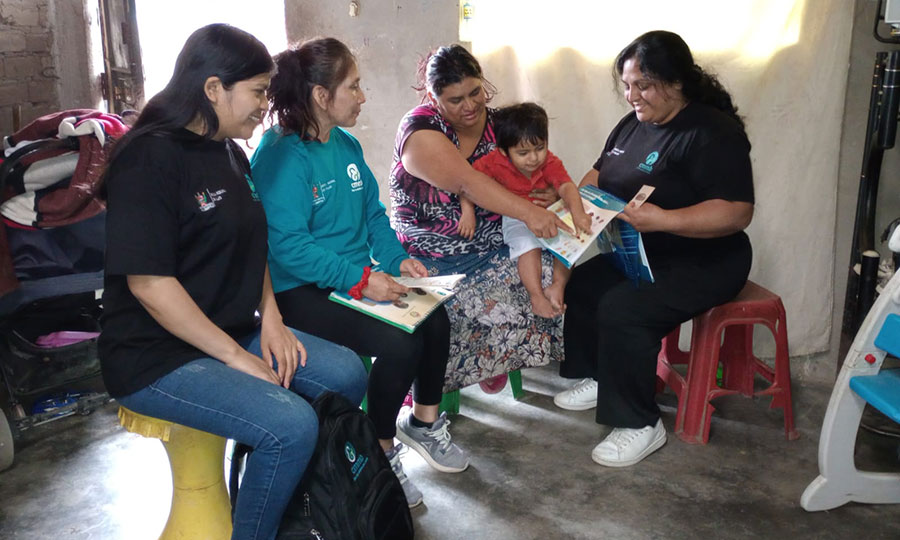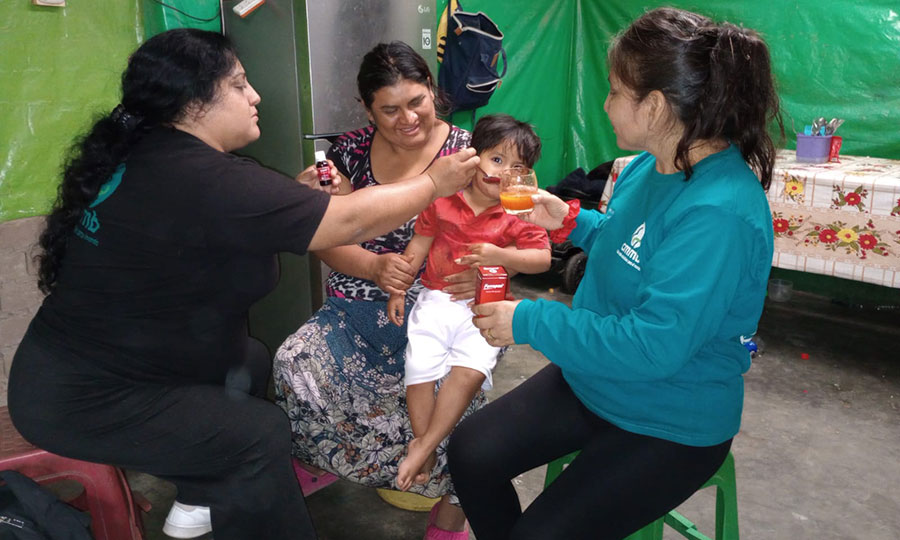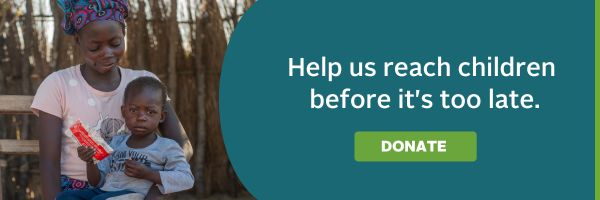Overcoming Anemia in Peru

CMMB promotes better nutrition around the world, especially for pregnant women and children, who are most vulnerable. Globally, malnutrition contributes to nearly half of all deaths under the age of five. Poor nutrition can lead to a condition called anemia, a serious health issue for expectant mothers and young children, where the body’s blood struggles to circulate enough oxygen.
With access to nutritional education and support, women and children can prevent or treat anemia and live healthier lives. CMMB has made great progress toward reducing the prevalence of anemia in places like Peru. We’re proud of the difference we’re making in the lives of the people we serve—like Veronica, a mother who turned to CMMB during one of her life’s most challenging moments.
A Difficult Diagnosis
Veronica is a street vendor in Trujillo, a city of nearly one million people on Peru’s coast, where areas of extreme poverty exist not far from tourist destinations. A single mother, she faces the daily struggle of raising her son by herself.
When he was young, Veronica noticed that her son seemed weak and didn’t have the same energy as other boys his age. Even more troubling, he had constant diarrhea and stomach pain. He often didn’t feel like eating. As his symptoms persisted, Veronica started to worry. Was something wrong with her son?
She took him to a doctor, who ordered bloodwork. Finally, she learned the reason for her son’s distressing symptoms: he had anemia. Veronica was devastated and scared. She wondered what the diagnosis would mean for her son’s health—and the future she was working so hard to provide.
Untreated, Anemia Can Cause Lifelong Health Challenges
Veronica’s son had low levels of hemoglobin, a protein found in red blood cells. Red blood cells are responsible for delivering oxygen to vital organs. If a person does not have enough red blood cells or hemoglobin, they may become anemic.
Symptoms of anemia include fatigue, dizziness, weakness, and shortness of breath. A child with anemia may be too tired to play or unable to concentrate in school. In severe cases, untreated anemia may stunt a child’s intellectual and physical development, causing lifelong challenges.
In low- and middle-resource communities, anemia is often caused by poor nutrition, especially when diets lack iron-rich foods, such meat, leafy green vegetables, and eggs. Globally, about 40% of all children under five are estimated to have anemia. Fortunately, anemia can be treated and prevented.
Reducing Cases of Anemia in Peru
In Trujillo and Huancayo, the communities in Peru where we work, prevention and treatment of anemia is a priority for CMMB. Our First 1,000 Days program focuses on improving health outcomes for young children. We monitor height and weight and conduct hemoglobin tests to screen children for malnutrition and anemia. We provide iron supplementation for children starting at six months old. Using approaches like home visits and mentoring, we educate women on preparing nutritious, iron-rich meals for their families.
Our work is having an impact. In 2024, the rate of anemia in children ages 6 to 35 months decreased by five percentage points, from 34% to 29% in Hunacayo and Trujillo Peru.
Hope for Her Son’s Future
Veronica wasn’t sure what to do after her son was diagnosed with anemia. At first, she tried using firmer discipline, scolding her son to eat better. But his symptoms and behavior stayed the same. Veronica despaired as he continued to lose strength.
Her neighbor, seeing her struggle, told Veronica about CMMB and recommended that she get in touch. With hope, Veronica turned to us.
For Veronica and her son, that connection made all the difference. Through workshops, home visits, and counseling, CMMB’s experts taught Veronica how to prepare iron- and nutrient-rich meals using organ meats, legumes, vegetables, and fortified cereals. We also provided iron and vitamin supplements.
Over time, the symptoms that worried Veronica began to improve. Her son’s appetite returned, and his diarrhea went away. Updated bloodwork shows his hemoglobin levels have increased.
Today, Veronica’s son is happy and healthy, with lots of energy. Veronica is happy, too. Thanks to CMMB’s support, she feels confident that she can provide her son with the nutrition he needs to grow healthy and strong.


